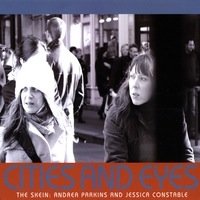“You won’t get a wild, heroic ride to heaven on pretty little sounds.” – George Ives
Month: March 2009
blog platforms or why blogger stinks
Dear fellow bloggers,
Please, if you use blogspot or blogger, or whatever it is now, find a new free place to host your blog. I try to be a good blog citizen and comment on other folks blogs when I have something to say. I have a good friend who is living in Argentina and blogging it, and I would love to comment on his blog, but the stupid blogger captcha image never loads, and it becomes such a frustration that I give up. This happens to me regularly on blogger hosted blogs. Please, find a grown up blog host.
Thanks,
Jeff (who doesn’t want to seem like an internet snob, but probably is…at least a little.)
Music criticism criticism and The Bad Plus
There is fine line that the thinking/blogging/music-reviewing recording artist must walk. I have never really claimed to be a music critic, but I have written reviews of music that I like here. I find it awkward to be critical of others’ work, while putting my own music out, with hopes of people liking it, and writing positively about it.
The relationship between reader and reviewer is one that has gotten significant, if inconclusive, thought from me on many occasions. I want to be able to judge a critic’s taste from their body of work, then be able to draw my own conclusions about new music based on my balancing of the critics words, and my knowledge of their taste.
I don’t know much of Michael J. West’s taste, but he reviewed For All I Care by The Bad Plus in the March Jazz Times. This is an album that has kept returning my listening bin. There is something that I find very compelling about it, although I don’t know that I can articulate exactly what it is about it that compels me. I do know that the two parts of the album that West singles out as “unlistenable” and “demented…like they’re playing on separate planets” are the two parts of the album that catch my ear as the most interesting.
I guess we all already knew that there are differing tastes in our business, or we would all listen to the same records. I just find it interesting that the same parts of an album can be heard as the best and worst parts by two different, yet seemingly aware and educated, listeners.
Timing, computers, and diffusion
My involvement with, and exploration of, electroacoustic music has increased exponentially in the past few months, and it is a lot of fun. I am finding that new tools of expression are helping me increase my understanding of the factors that make music compelling.
Right around the time I started getting serious about exploring electronic music on a deeper level, this disc showed up in my mailbox. Cities and Eyes by The Skein: Andrea Parkins and Jessica Constable is a a duo project that lists the performers’ instruments as: electric accordion, effects, samples and live processing, synthesizers, piano, voice, and electronics. Some of those are listed for both musicians. To my ears, this CD does a great job of taking sounds that we don’t normally associate with “songs,” and putting them in a context that has the vibe of “songs.”
If you are not sure how you feel about electronic music, check out Jon Appleton.
I have spent the last three nights at the LSU Festival of Contemporary Music. The guest composer was John Chowning. He is a wonderfully engaging man, and ridiculously smart. That is a great combination, and it was a real pleasure to get to spend some time with one of the pioneers of computer music.
One of the most interesting learning aspects of the weekend, for me, was getting to explore LSU’s ICAST surround sound system. For the FCM it was set up as 12 pairs of loudspeakers, plus a subwoofer. The speakers are set up in a way that allows stereo mixes to be presented in a variety of ways that remain true to the original stereo placement, but allow front/rear motion, and variation of the sound in relation to direct or reflected paths from the speakers to the ear. That is a somewhat simplified explanation, as there are many other possibilities with the system. The part that excited me, was that ICAST provides a performance aspect to the presentation of prerecorded music. This makes the concert experience very different from simply listening to the pieces on a nice stereo. Several students had the opportunity to diffuse (mix) a piece each night. It was a lot of fun, and thought provoking on several levels. Diffusing also gives me a bit of the performers rush that I get when playing. Over the three nights, I got to diffuse Love Song by Paul Rudy, Le Renard et La Rose by Robert Normandeau, and Fat Millie’s Lament by Kenneth Gaburo.

